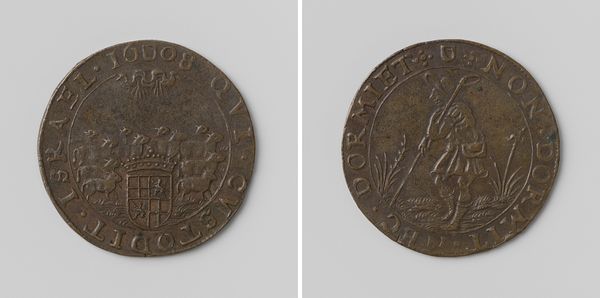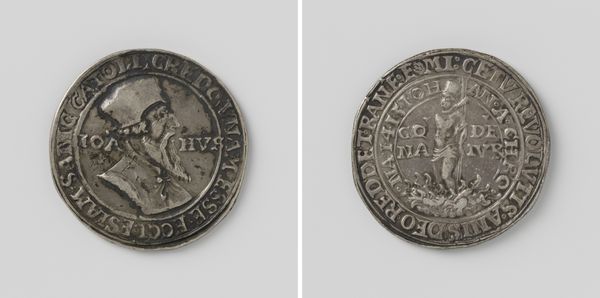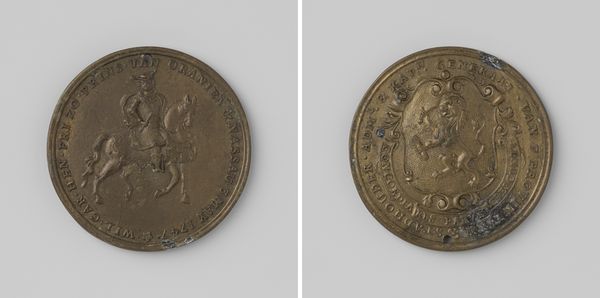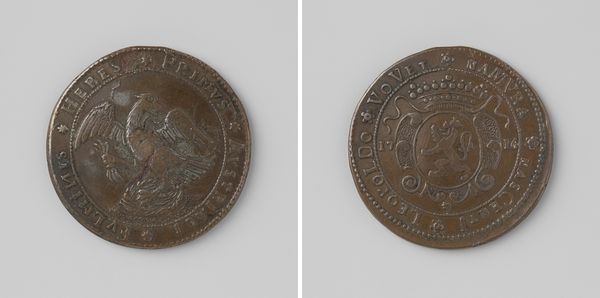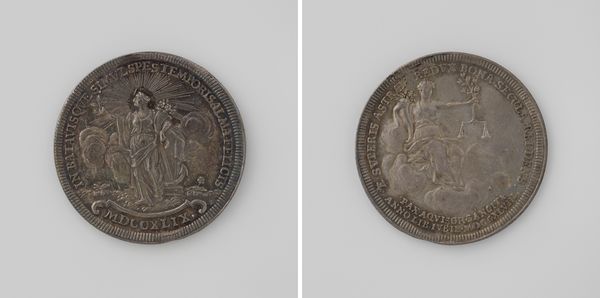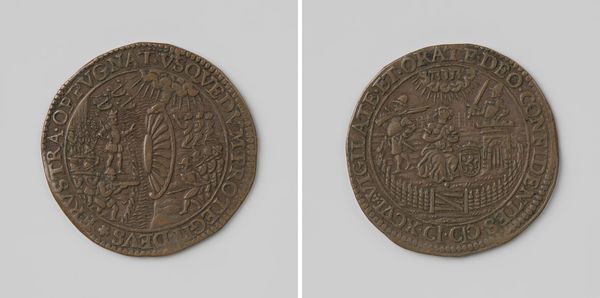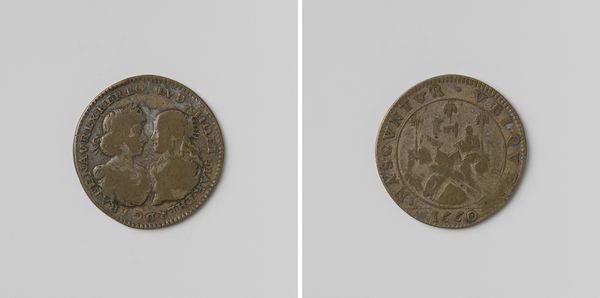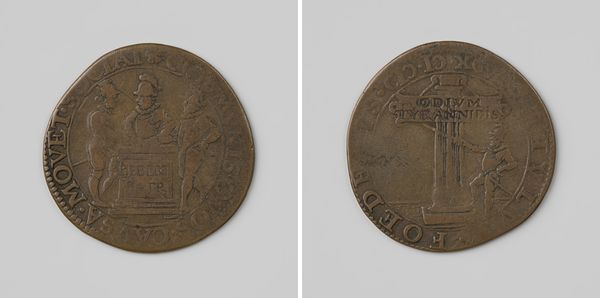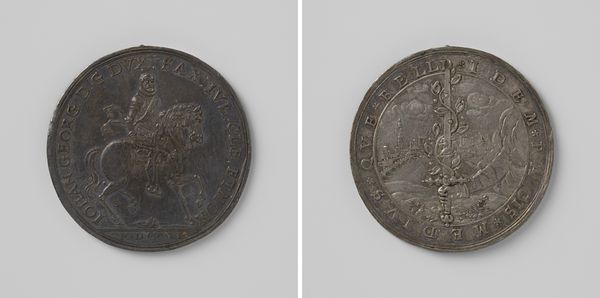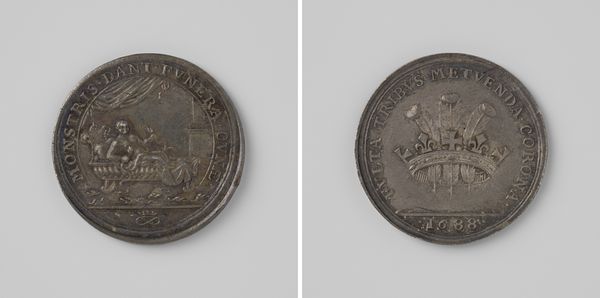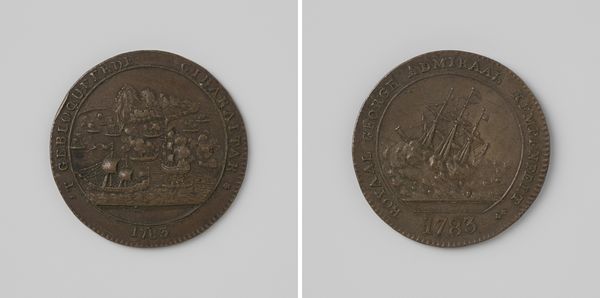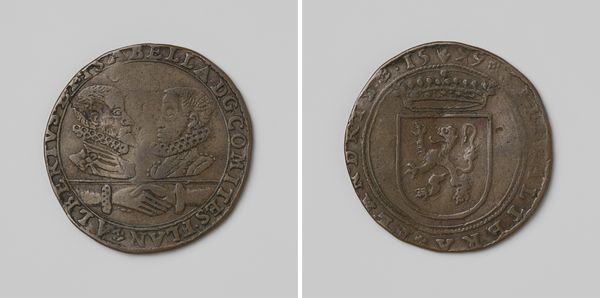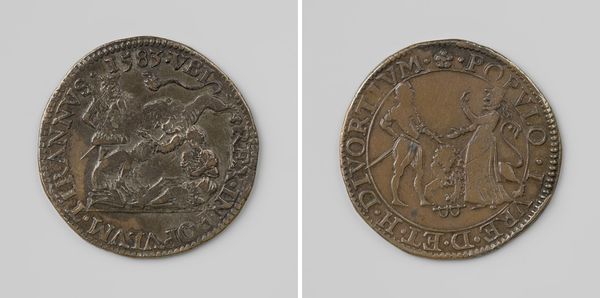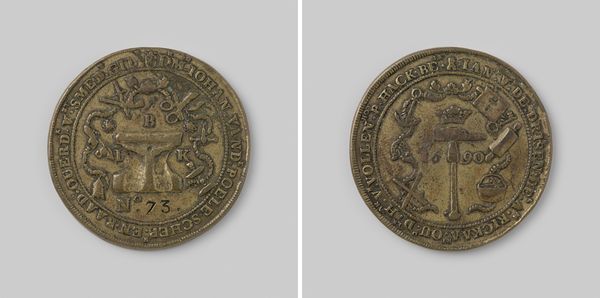
metal, relief, bronze, sculpture, engraving
#
medieval
#
metal
#
sculpture
#
relief
#
bronze
#
sculpture
#
history-painting
#
engraving
Dimensions: diameter 2.8 cm, weight 4.70 gr
Copyright: Rijks Museum: Open Domain
Curator: Here we have a bronze commemorative medal, crafted in 1586, which portrays "The Capture of Neuss by Alessandro Farnese, Duke of Parma". It's currently housed in the Rijksmuseum. What's your immediate response to seeing this piece? Editor: The first thing that strikes me is its worn condition; the details feel muted, almost like a whisper from a conflict long past. It evokes a certain melancholy, a sense of lost grandeur or perhaps a reminder of the futility of war. Curator: Precisely. These medals were, in essence, pieces of political propaganda, circulated to bolster Farnese's image and legitimize Spanish power. They served as material expressions of dominance. Editor: So it's about power but whose story are we being told? We have to acknowledge the inherent bias in a work like this. What about the people of Neuss? What was the real human cost? This piece asks to be critically unpacked. Curator: Absolutely. Consider the visual vocabulary here. One side shows the duke triumphantly riding a chariot, lion imagery evokes strength and dominance, while the other shows symbols. It's a controlled narrative designed to project might. Editor: The symbolism becomes particularly interesting when contextualized with that period's religious wars. Even something seemingly celebratory like an opulent bronze, we see how political powers could and still do manipulate cultural production to normalize violence and persecution. Curator: And its existence within the Rijksmuseum brings a complex tension. It speaks to a narrative, a grand vision of Dutch history that, today, needs revisiting and even, in cases like this, some deconstruction. Editor: For me, art history, particularly pieces such as these, pushes one to question the nature of memory and who controls it. This medal, once meant to instill power, is now asking about resistance. What we extract from history will eventually define us.
Comments
No comments
Be the first to comment and join the conversation on the ultimate creative platform.
